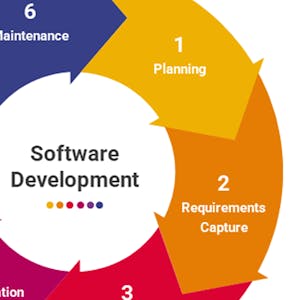Software Engineering: Modeling Software Systems using UML
About this Course
Software Development Life Cycle (SDLC) is the process of developing software through planning, requirement analysis, design, implementation, testing, and maintenance. This course focuses on the requirement analysis phase of SDLC, and you will learn how to use UML models to capture the system requirements and to facilitate communication between client/users and developers. UML is a general purpose visual modeling language for systems. It can be used to highlight different aspects of the system that are of interest to different stakeholders. Data requirements are captured in the domain model, which describes the important concepts of the application domain as classes, associations between them and constraints on them. Functional requirements are captured in the use-case model to describe the interactions between the system and its environment (users, other systems). UML incorporates the current best practices in Object-Oriented modeling techniques. Basic object-oriented programming (OOP) concepts are required to attempt the course. It is recommended to take the courses in the order they are listed, as they progressively develop techniques and concepts about software engineering, but it is not a hard requirement.Created by: The Hong Kong University of Science and Technology

Related Online Courses
If you have basic knowledge of Java and want to delve into the world of object-oriented programming, this course is for you. In four weeks, you will start with the fundamental concepts of object... more
Embark on a thorough educational expedition through the \"Fundamentals of Database Management with MySQL\" module. This foundational program aims to impart a robust comprehension of MySQL, a... more
This specialization introduces learners to essential data science techniques, including time series analysis, statistical learning, and data preparation. Learners will develop foundational skills... more
This introductory course explores the dynamic field of restaurant revenue management (RRM) and is designed for restaurant managers, supervisors, and other hospitality professionals seeking to... more
This is an introductory astronomy survey class that covers our understanding of the physical universe and its major constituents, including planetary systems, stars, galaxies, black holes, quasars,... more








